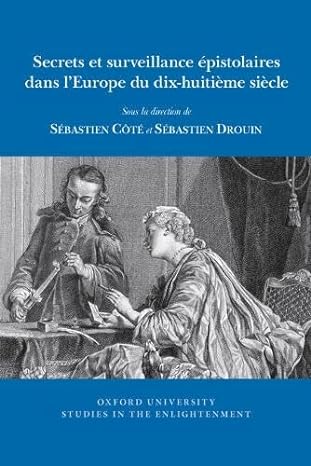In a century marked by innumerable armed conflicts and incessant theological quarrels, including tensions between the Church, the State and the Philosophes, literary correspondence provides a privileged site via which to examine the mechanisms of surveillance. Epistolary communication was at the heart of daily life among the eighteenth-century literati. Familiar with methods of surveillance, the Enlightenment elite often amused themselves by sending unsealed missives, or else directly mocked those with prying eyes, even urging them to continue reading. Both public and private documents, located at the crossroads of all forms of activity, these letters have at times been destroyed, lost or forgotten. While some remain forever sealed or silenced, others form part of Europe's literary heritage. Whether in letters between friends, diplomatic correspondence or police reports, one conceals and surveils oneself. The eight articles that constitute this volume offer an epistolary journey through eighteenth-century Europe by focusing on forgotten or famous people, even unknowns, all of whom must have written their correspondence while watching or knowing that they were being watched.
Publication Type
- Book



